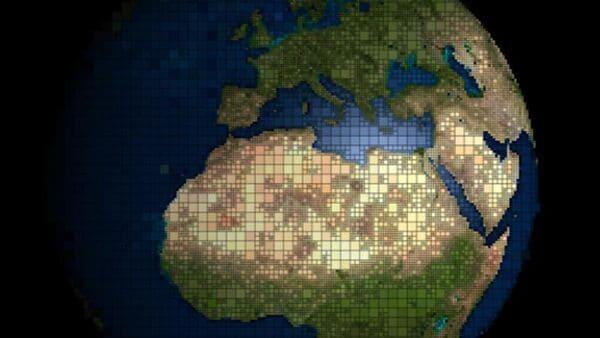
Putin Scraps Summit On Lack Of Attendance From Arab Leaders
The debut Russia-Arab conference was scheduled to be held in Moscow on Oct. 15. The Kremlin had viewed it as one of the year's most important foreign-policy initiatives, intended to signal to Western leaders, especially US President Donald Trump, that Russia enjoys support and influence across the Arab World, a person familiar with the preparations for the event said, asking not to be identified as the information isn't public.
The last-moment call off is disappointing, but the Kremlin is sure it can be rearranged for a later date, the person said.
“It will depend on how the situation develops in the context of implementing Trump's plan and so on,” Putin's foreign policy aide, Yuri Ushakov, said of a potential rescheduling in a video interview posted on Telegram.“We'll see what our Arab friends suggest.”
The summit was officially postponed late Thursday, as heads of state are unable to travel to Moscow while the Trump-brokered Israel-Hamas proposal is being implemented, the Kremlin said in the statement, following a call between Putin and Iraqi Prime Minister Mohammed Shia Al-Sudani.
The Russian leader on Friday said the delay was on his initiative.“I did this because I don't want to interfere with the process that, as we hope, has now been set in motion,” Putin told reporters in Dushanbe, Tajikistan.
The delay underscores that much of the Arab world is now more interested in building ties with Trump, who has grown increasingly frustrated with Putin's refusal to end Russia's invasion of Ukraine despite US diplomatic efforts.
“Given Trump's latest attempts to put pressure on the Kremlin, it would have been useful to show that Russia isn't isolated and that it has influential friends,” said Alexander Gabuev, Berlin-based director of the Carnegie Russia Eurasia Center.
Russia has been preparing for the summit since at least April, when Putin first announced the plan. The Kremlin invited 22 Arab state heads to the forum, which was due to be held under the slogan“cooperation for peace, stability and security.” It started a website devoted to the summit on Oct. 3.
Yet as of Tuesday only a few leaders, including Syrian President Ahmed al-Sharaa and the head of the Arab League, had confirmed their participation. Regional heavy-weights, such as Saudi Crown Prince Mohammed bin Salman, United Arab Emirates President Mohammed bin Zayed Al Nahyan and Egypt President Abdel Fattah el-Sisi were not officially confirmed.
The Kremlin on Friday suggested the summit would be rescheduled for November.
Trump threatened to impose more sanctions on Russia on Thursday. At the same time, he's been praising Arab leaders for helping facilitate progress with Hamas in recent weeks.
The US president met Arab officials in New York last month, with the discussions proving critical to enabling Washington to propose a peace accord likely to be accepted by both sides.
“During the initial phase of the implementation of Trump's plan, the situation remains highly sensitive,” said Vasily Kuznetsov, deputy director of the Institute of Oriental Studies of the Russian Academy of Sciences.“So neither the Arab states nor Moscow have any interest in adding political overtones by linking Arab–Russian relations with the Gaza settlement plan of the US.”
The Kremlin's influence in the region has been fading for some time as the war in Ukraine consumes much of Russia's military, economic and diplomatic bandwidth. The collapse of Syrian dictator Bashar al-Assad's regime late last year further weakened Moscow's presence in the Middle East, while the US and China expand their own roles and deepen their foothold.
Russia's relationship with Gulf countries, particularly Saudi Arabia, is important for global energy supplies, with both key members of the Organization of the Petroleum Exporting Countries.
“Putin wanted to show everyone that he is the leader of the 'global majority,' but what kind of majority is that without the Arab world?” Moscow-based political analyst Andrei Kolesnikov said.“He would like to be as big a player there as the Soviet Union once was, but he lacks the resources.”
Putin is in Dushanbe this week for a summit of leaders of the Commonwealth of Independent States, which unites some former Soviet republics.“But even those countries, naturally, pursue multi-vector policies,” Kolesnikov said.
(Updates with Putin comments in sixth paragraph.)
More stories like this are available on bloomberg
©2025 Bloomberg L.P.
Legal Disclaimer:
MENAFN provides the
information “as is” without warranty of any kind. We do not accept
any responsibility or liability for the accuracy, content, images,
videos, licenses, completeness, legality, or reliability of the information
contained in this article. If you have any complaints or copyright
issues related to this article, kindly contact the provider above.
Most popular stories
Market Research

- Crypto Market Update: Pepeto Advances Presale With Staking Rewards And Live Exchange Demo
- Kucoin Appeals FINTRAC Decision, Reaffirms Commitment To Compliance
- Cregis And Sumsub Host Web3 Compliance And Trust Summit In Singapore
- Chartis Research And Metrika Release Comprehensive Framework For Managing Digital Asset Risk
- Nodepay Launches Crypto's Largest Prediction Intelligence Platform
- Schoenherr Opens London Liaison Office As Gateway To Central Eastern Europe




















Comments
No comment